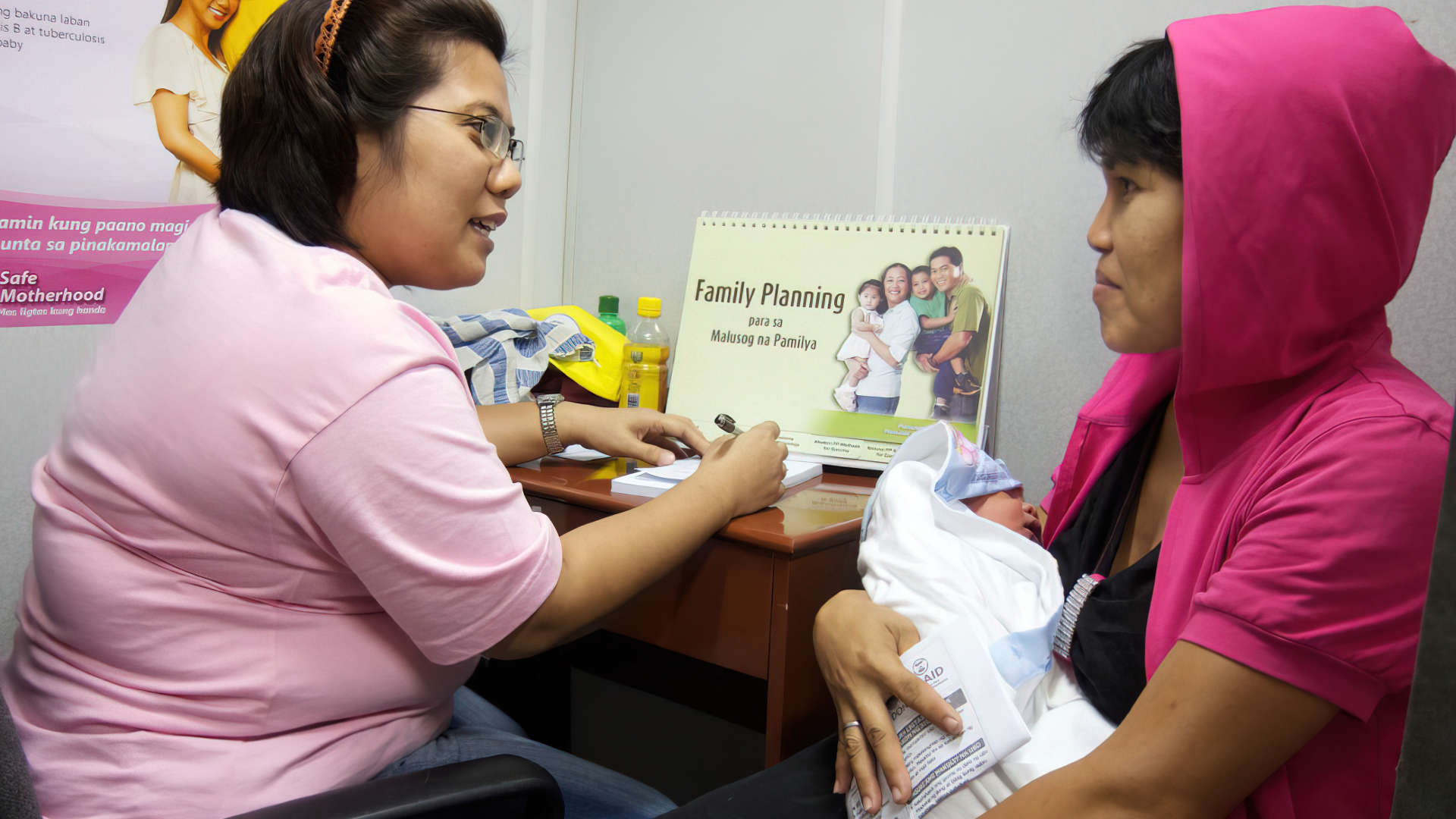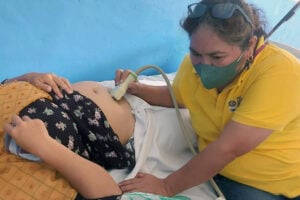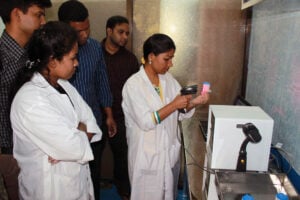
Family Planning and Reproductive Health
A woman attending a postpartum family planning counseling inside refurbished bus during an Lakbay Buhay Kalusugan (Journey to a Healthy Lifestyle) event in Albay Province, Philippines. Photo credit: Igor Dashevskiy
Family Planning and Reproductive Health
Ensuring sexual and reproductive healthcare (SRH) services that include family planning (FP) are available is crucial not only to improve the health of women, children, and families and safe lives, but also to empower women to participate fully in society and fulfill human rights.
Today, more than 218 million women globally want to avoid or postpone their pregnancy but are not using an effective FP method. Adolescents and older women face higher risks of severe complications and death during pregnancy, delivery, and the postpartum period. When women give birth too often and too soon after a previous delivery, the children are at greater risk of poor health.
Many countries recognize the need for SRH/FP and made a commitment as part of United Nations’ Sustainable Development Goals to ensure universal access to SRH services, including for FP, information and education, and the integration of into national strategies and programs by 2030. URC supports countries improve access and quality of SRH/FP services by working at the household, community, facility, sub-national, and national levels with the following overarching strategies:
- URC applies an integrated reproductive health life cycle approach to increase demand, access, and quality of care for clients through integration of FP information and services with immunization, well-child visits, nutrition, HIV/AIDS, maternal and postpartum, and COVID-19 health care services.
- URC prioritizes the needs of adolescents to access SRH information and services.
- URC’s people-centered quality SRH/FP services are built around fundamental client rights to safety, privacy, confidentiality, informed choice, dignity, and provision of evidence-based care, as well as positive experience of care.
- To achieve equity, URC partners with and prioritizes disadvantaged and underserved groups, including refugees, people with disabilities, and others to design, implement, and monitor services.
- To increase demand for and achieve changes in SRH requires the deployment of tailored social and behavior change interventions that alter individual behaviors and gender norms, positively engage men, and sustain these changes over time.
- As sexual and gender-based violence (SGBV) remains common and undermines health outcomes and bodily autonomy, including for boys and men, URC supports screening for SGBV and access to services as an indispensable part of comprehensive SRH care.
Since 1980, URC has supported more than 60 countries around the world develop and implement successful SRH/FP programs at all levels of the health care system. URC projects are making strides in SRH/FP across Africa, Asia, and the Middle East.
In Uganda, the USAID’s Regional Health Integration to Enhance Services in Northern Uganda (RHITES-N), Acholi Activity, which aims to increase access to and use of high-quality integrated health services, saw an increase in the uptake of long-acting contraceptive methods and more than doubled the number of IUD users across the eight districts of the Acholi subregion.
URC leads the USAID’s Bangsamoro Autonomous Region in Muslim Mindanao for Health (BARMMHealth) Project in the Philippines to bolster the capacity of the Ministry of Health – Bangsamoro Autonomous Region in Muslim Mindanao in facilitating high-impact, local health solutions in FP, adolescent and youth reproductive health, and maternal and child health, towards self-reliance and sustainability. Despite implementation challenges due to COVID-19, BARMMHealth’s support led to an 8% increase in the use of FP methods from March 2020 until December 2020.


